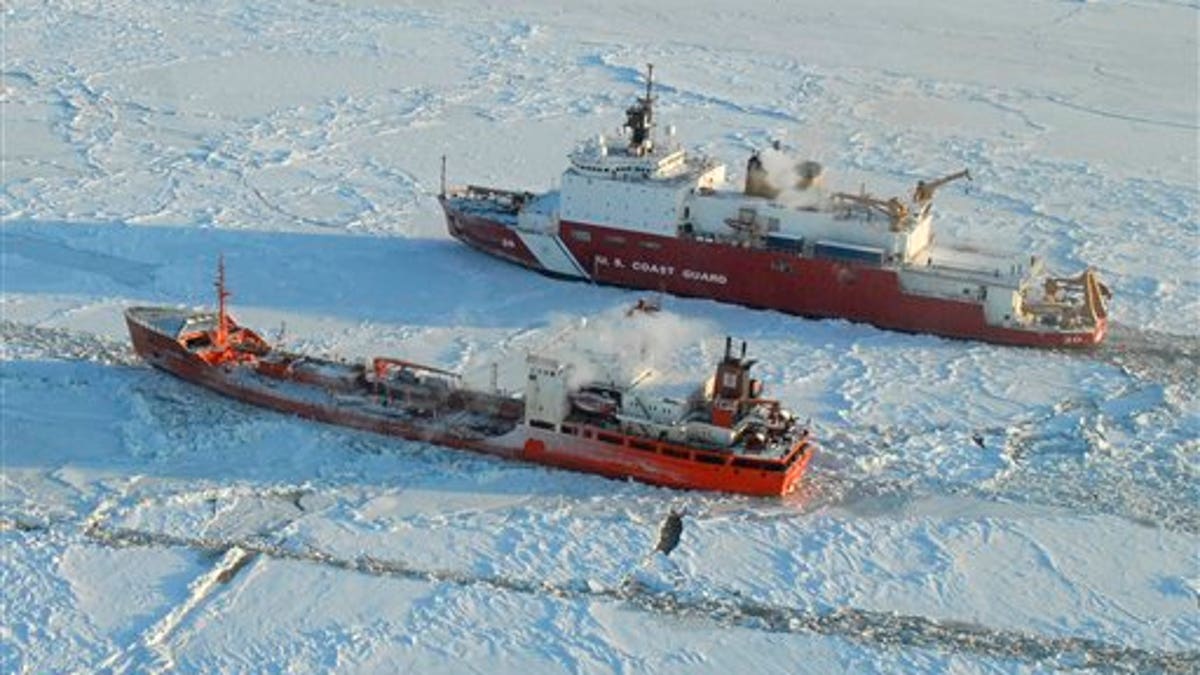
Jan. 6, 2012: The Coast Guard Cutter Healy breaks ice around the Russian-flagged tanker Renda 250 miles south of Nome. The Healy is the Coast Guard's only currently operating polar icebreaker. The vessels are transiting through ice up to five-feet thick in this area. The 370-foot tanker Renda will have to go through more than 300 miles of sea ice to get to Nome, a city of about 3,500 people on the western Alaska coastline that did not get its last pre-winter fuel delivery because of a massive storm. (AP/U.S. Coast Guard)
ANCHORAGE, Alaska – A Russian tanker is inching through thick ice in the Bering Sea en route to delivering fuel to the iced-in western Alaska city of Nome.
The U.S. Coast Guard icebreaker Healy is cutting a path for the 370-foot Renda, which carrying more than 1.3 million gallons of fuel.
Coast Guard Petty Officer First Class David Mosley says the vessels are 170 miles south of Nome as of late Sunday morning. Mosley says the ships are able to travel only five miles an hour through ice up to two feet thick.
The Coast Guard initially estimated arrival time early Monday, but Mosley says it's difficult to predict an exact time because of challenges of navigating through ice.
Nome didn't get its last pre-winter barge fuel delivery because of a massive storm.
"They're navigating through ice right now, taking a direct route for now," said Jason Evans, the CEO of Sitnasuak Native Corp, one of the companies undertaking the delivery. "They considered going through patches where there might be thinner ice, but determined that that would have taken them on a longer route."
The city of about 3,500 people on the western Alaska coastline normally gets fuel by barge. But it didn't get its last pre-winter fuel delivery because of a massive storm and it could run out of crucial supplies before spring.
The Russian tanker came upon ice about a foot thick very early Friday near Nunivak Island, a large island in the eastern Bering Sea, the Coast Guard said.
The tanker is being shepherded by the Healy, the Coast Guard's only functioning icebreaker — a ship of special design with a reinforced hull made to move through ice.
"It's going basically as planned," Evans said.
If the mission is successful, it will be the first time petroleum products have been delivered by sea to a Western Alaska community in winter.
Sitnasuak officials have said they settled on the Russian tanker delivery plan after determining it would be much less expensive and more practical than flying fuel into Nome. The vessel, which is certified to travel through ice 4 feet thick for long distances, normally delivers fuel to communities in the Russian Far East.

